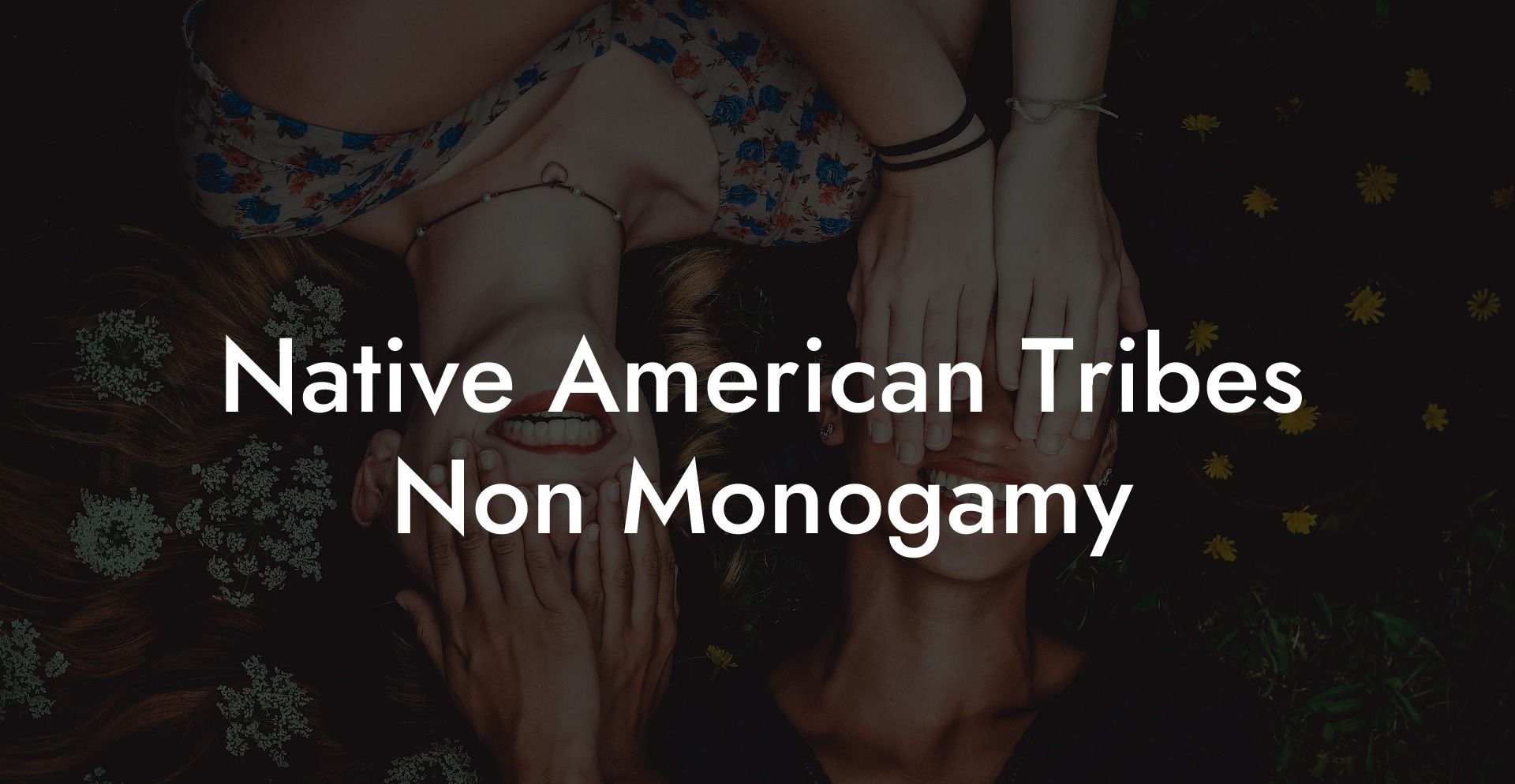Discover the unique and captivating practices of non-monogamy in Native American tribes. Delve into the intricate rituals, cultural significance, and valuable insights that these ancient societies offer when it comes to polyamory and relationship dynamics.
Native American Tribes Non Monogamy Table of Contents
Non-Monogamy in Native American Cultures
It is essential to recognize that there is no single, uniform Native American culture: we are talking about hundreds of tribes, each with its unique customs and beliefs. The topic of non-monogamy differs across various groups. This article will explore common practices and examples of non-monogamy from specific tribes that may challenge the Western monogamous model.
The Iroquois Tribe
The Iroquois tribe, consisting of six nations, is one notable example of a Native American society that practiced non-monogamy. They followed a matrilineal structure, where children belonged to their mother's lineage, and descent and property were passed down through the female line. This system allowed women to have multiple partners, emphasizing the significance of maternal ties in the community.
The Hopi Tribe
The Hopi Tribe, residing in the southwestern United States, embraced the idea of matrifocal relationships. This means that even though they practiced monogamous relationships, their focus was on women's roles in the community rather than traditional married couples. In their society, women owned the land and crops, played essential religious roles, and were crucial in organizing clan and kinship systems.
The Sioux Tribe
In the Sioux tribe, non-monogamy was accepted within certain limitations. Men were allowed to have multiple wives, whereas women practiced serial monogamy, concluding one relationship before embracing another. This practice inhibited the development of jealousy and created a more harmonious environment where families cooperatively raised their children.
The Eskimos
Moving to the North, the Eskimos, also known as the Inuit, implemented a unique and practical approach to non-monogamy. They practiced wife-sharing, where husbands would offer their wives to visitors and travelers as a gesture of hospitality. The motivations behind this practice were primarily driven by survival in the harsh Arctic environment, reducing jealousy and strife within communities and providing social comfort to lonely travelers.
Native American Tribes Non Monogamy Example:
Picture yourself living in an Iroquois community where children are raised by the mother's clan, and male partners contribute to nurturing every child. This creates an environment where men and women are free to engage in multiple relationships, strengthening the bond between clan members. The focus is on community and cooperation, rather than possession or jealousies.
Each Native American tribe offered its unique approach to non-monogamy, highlighting the vast array of romantic and sexual relationships that can exist. By exploring these cultures, we can gain an invaluable perspective on love, sexuality, and partnership dynamics that challenge our preconceived notions. Share this captivating journey into Native American non-monogamous practices with others and continue to delve into the diverse and fascinating realm of relationship dynamics within The Monogamy Experiment.













